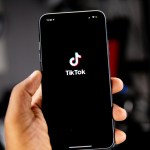News
The ‘if it’s not Three, it’s not real 5G’ advertising series was banned by the regulator after it deemed the companies claims to be inaccurate
Compared to its rivals, Three was a little late to the 5G party and perhaps this feeling was the impetus behind its controversial ‘if it’s not Three, it’s not real 5G’ campaign.
The UK’s other three major operators, who of course do offer ‘real’ 5G, were quick to complain the regulator about the slanderous adverts. Three would argue that its 100 MHz of contiguous spectrum give it a significant advantage in 5G over the others, whose spectrum holdings are smaller and more fragmented, but the Advertising Standards Authority (ASA) disagreed.
"We understood that, all other factors being equal, greater bandwidth would allow a provider to support greater traffic capacity. However, because take up was still so limited, differences in 5G capacity between networks were unlikely to result in material differences in the experiences of end users at the time the ad appeared,” said the ASA.
The ASA ruled that the ad campaign be stopped immediately and prohibited Three from making any claims in future that suggested its rivals’ 5G connectivity was not ‘real’. The ASA, however, does not have the power to impose a financial punishment on the operator, meaning this cease-and-desist is mostly a slap on the wrist.
At the heart of this ad campaign, Three was seeking to capitalise on the general public’s lack of understanding of 5G. Surveys have shown that whilst the general awareness of the term 5G is widespread – unsurprising, given how much it has been shoehorned into the public eye over the last few years – a broader understanding of the new technology’s capabilities is still far off. As a result, the public are particularly susceptible to claims of superiority without evidence.
Indeed, it is the same lack of understanding that has drawn some sections of the public to declare 5G radiation a health risk, even going so far as to bizarrely link it to the coronavirus outbreak.
With the ASA telling Three to stop capitalising on public ignorance, the situation reveals that there is still a lot of work to be done to improve the public understanding of this next generation technology, as well as to ensure ethical advertising.
What is the best way to convey the benefits of 5G to your customers? Find out from the experts at this year’s 5GLIVE
Also in the news:
Ofcom unites UK telcos to launch national Stay Connected campaign
BT offloads LatAm operations to CIH Technology
NTT and Toyota partner up for Mt Fuji smart city

















